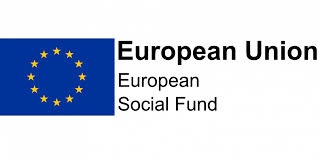Putting SME voice at the heart of course development through co-design
The High Level Skills (HLS) programme has published a summary report highlighting the main skills and talent needs faced by local SMEs, which have been supported by the GRADS for D2N2 project.
By Joe Boultby-Ward | Published on 8 February 2021
Categories: Business;


Today (Friday 5 February 2021), the High Level Skills (HLS) programme has published a summary report into the findings of the analysis of over 500 Organisational Needs Assessments (ONAs) from SMEs in the D2N2 area. The report highlights the main skills and talent needs faced by these SMEs, which have been supported by the GRADS for D2N2 project.
The HLS programme aims to address the high-level skills needs of small and medium-sized enterprises (SMEs) and their employees, helping them to grow by creating a higher skilled and more productive workforce. The programme consists of two part-ESF-funded projects: Priority Skills for D2N2 SMEs and GRADS for D2N2, which were funded from July 2018 to June 2021.
The programme is led by Nottingham Trent University (NTU), and delivered by a consortium of further education, higher education and local authority partners that also includes Derby College, Nottingham College, the University of Derby and Nottingham City Council.
By June 2021, GRADS for D2N2 will have supported over 700 SMEs. Our summary report uses the data captured from this support to highlight the main skills and talent challenges and needs of SMEs in the D2N2 area.
The project is funded under investment priority 2.2, 'Improving the labour market relevance of educations and training systems'. In support of this priority, and as part of co-design activity, the findings from this report will be sused to inform future course development and business support, in addition to contributing to the wider evaluation of the HLS programme.
Co-design within the HLS programme consists of five key activities:
- Involvement of SMEs in industry advisory boards and sector boards established to inform more responsive curriculum
- Involvement of SMEs in focus groups and course pilots
- Analysis of ONA data to identify course needs and development of new courses in response to these needs
- Involvement of SME staff and owners in design and development of new courses
- Involvement of SME staff and owners in delivery of new courses
We are pleased that BAME and Black-led businesses make up 17% of businesses supported up to the end of September 2020, and will continue to work to extend the reach of support provided. Sector and demographic characteristics are, however, only highlighted within the report where there is a notable difference identified. Likewise, any similarities or differences compared to the Employer Skills Survey have been highlighted. The full report includes the quantitative data and will be published week commencing 8 February 2021.
Andria Birch, HLS Programme Manager, today said: "Dissemination activities started last November when we shared key findings with our stakeholders at our Voices of Diverse SMEs event.
"We are pleased now to share the full report and look forward to publication of an update when the latest data to December 2020 has been fully analysed in addition to publication of a focused skills report.
"We will continue to work to widen participation in lifelong learning, apprenticeships and SME graduate employment, to secure better outcomes for all.
"Thanks as always goes to our partners, wider stakeholders and SME participants for sharing their needs and data with us. We will ensure that their voices continue to feed into new projects, courses and curriculum development."
The future of High Level Skills
Looking ahead, NTU have been successful in leading bids for a further £3m of ESF funding to continue supporting SMEs through two new projects that will be delivered as part of the High Level Skills programme.
The first project – Smart and Inclusive Leadership (SAIL) – will provide SMEs with the leadership and management skills to drive productivity, growth and competitive business during a time of unprecedented challenges due to COVID-19.
The second – Branch out in STEM – will support the development of employees to thrive in the STEM industries to grow productive businesses and take advantage of new and emerging technologies.
Both projects have been developed based on what SMEs have told us they need and will offer qualifications from basic skills and Level 1 through to accredited levels of higher education. They are supplemented by an additional £3m in match funding and are delivered by partners spanning higher education, further education, and new partners from the third sector to support with widening participation.
Both projects will be launched in spring 2021 and run through to December 2023.
Download the summary report:
Notes for Editors
For media enquiries, please contact Joe Boultby-Ward, ESF Marketing Manager by email or on +44 (0)115 878 8899.
- The High Level Skills programme is part-funded by the European Social Fund (ESF) and is made up of two complementary projects – Priority Skills for D2N2 SMEs, and GRADS for D2N2.
- The projects have received £2,201,163 (Priority Skills for D2N2 SMEs) and £7,360,994 (GRADS for D2N2) of funding from the European Social Fund as part of the 2014-2020 European Structural and Investment Funds Growth Programme in England.
- The Department for Work and Pensions (and in London the intermediate body Greater London Authority) is the Managing Authority for the English European Social Fund programme.
- Established by the European Union, the European Social Fund helps local areas stimulate their economic development by investing in projects which will support skills development, employment and job creation, social inclusion and local community regenerations.
- For more information, visit https://www.gov.uk/european-growth-funding.